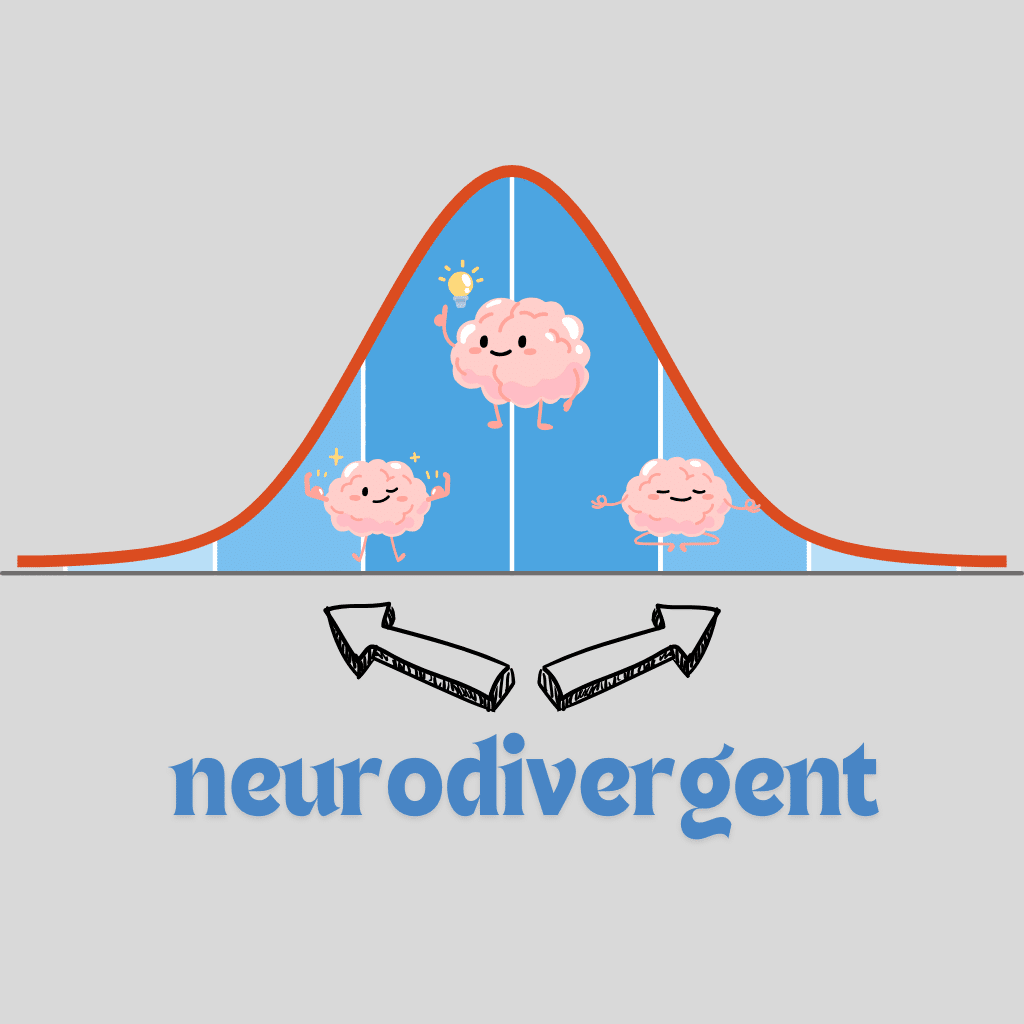What is Neurodivergent?
Definition: Neurodivergent refers to individuals whose neurological development and functioning differ from societal norms, often associated with conditions such as Autism, ADHD, Dyslexia, Tourette’s Syndrome, and others.
Origin: The term originated as part of the neurodiversity movement, emphasizing that variations in brain functioning are natural and valuable rather than disorders or deficits.
Identity: Being neurodivergent is an aspect of identity that acknowledges unique ways of thinking, learning, and interacting with the world. It’s not about labeling individuals as “abnormal” but recognizing and respecting diversity.
Key Aspects of Neurodivergence
1. Cognitive Diversity: Neurodivergent individuals process information, solve problems, and interact in ways that may differ from neurotypical individuals. These differences often come with unique strengths and challenges.
2. Examples of Neurodivergence:
- Autism Spectrum Disorder (ASD): May involve enhanced pattern recognition, attention to detail, and unique problem-solving abilities.
- ADHD: Often associated with creativity, spontaneity, and high energy but can also include challenges with executive functions like time management and focus.
- Dyslexia: Characterized by difficulties in reading but often accompanied by strengths in visual and spatial reasoning.
3. Strengths: Neurodivergent individuals often excel in areas such as creativity, innovation, analytical thinking, and persistence. Their diverse perspectives contribute to solving complex problems and fostering inclusivity.
Neurodivergence in Different Contexts
1. Education:
- Traditional education systems may not fully accommodate neurodivergent students, leading to the need for individualized learning approaches and inclusive strategies.
- Adjustments such as visual aids, flexible timelines, and multi-modal teaching methods can greatly benefit neurodivergent learners.
2. Workplaces:
- Neurodivergent employees bring unique strengths to the workplace, such as out-of-the-box thinking and attention to detail.
- Inclusive work environments with accommodations like flexible hours, quiet spaces, or assistive technologies can enhance their productivity and well-being.
3. Society:
- Recognizing neurodivergent individuals fosters a culture of acceptance and reduces stigma.
- Advocacy for rights and accessibility ensures neurodivergent individuals have equal opportunities to succeed in all areas of life.
How Does Being Neurodivergent Impact Executive Functions?
1. Challenges: Neurodivergent individuals may experience differences in executive functions such as planning, organization, impulse control, and adaptability. For example:
- ADHD: Difficulties with attention regulation and task prioritization.
- Autism: Challenges with cognitive flexibility and social communication.
- Dyslexia: Struggles with working memory and sequencing tasks.
2. Strategies for Support:
- Implementing tools like planners, visual aids, and structured routines.
- Engaging in practices such as mindfulness and executive function coaching.
3. Empowerment: Supporting neurodivergent individuals in developing executive functions can enable them to better navigate traditional structures and maximize their potential.
Advocacy and Inclusion
- Community Support: Building neurodivergent-friendly schools workplaces and communities creates an inclusive environment where all can thrive.
- Policy Changes: Advocating for legal and institutional reforms to ensure accommodations and equal opportunities for neurodivergent individuals.
- Celebrating Neurodiversity: Acknowledging neurodivergent strengths and perspectives enriches society as a whole.
By understanding and embracing what it means to be neurodivergent, we can foster a world that values every individual’s unique contributions and abilities.




